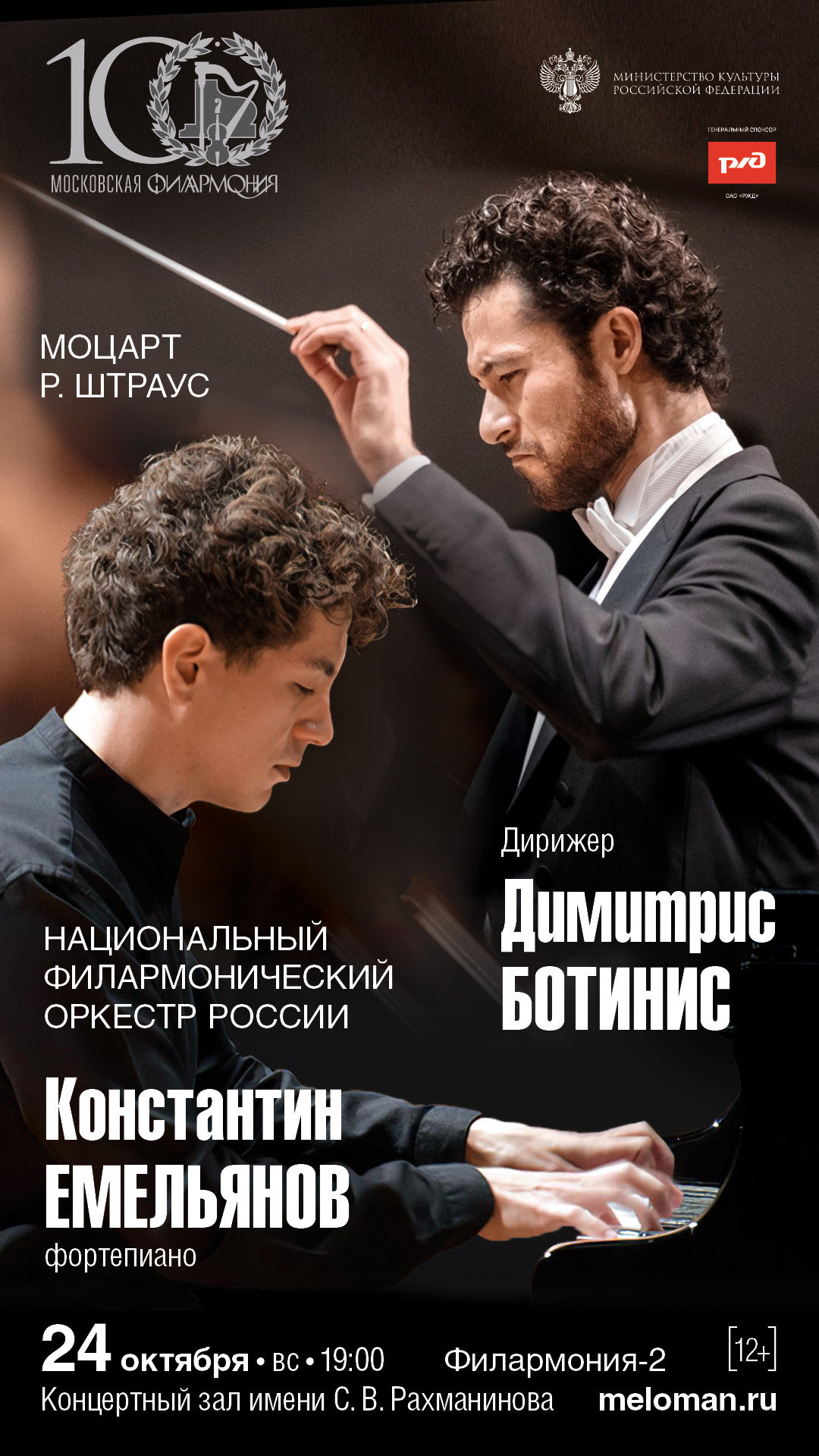October 24, 2021 | Rachmaninoff Hall at the Philharmonia-2
Subscription Series No. 100 "The National Philharmonic Orchestra of Russia"
Soloist – Konstantin Emelyanov, piano
Conductor – Dimitris Botinis
Mozart. Overture to the opera “Don Giovanni”
Mozart. Concerto No. 24 for piano and orchestra in C minor, KV 491
R. Strauss. Burleske for piano and orchestra in D minor
R. Strauss. “Don Juan”, symphonic poem, Op. 20
The first concert of the NPR's subscription series at the Philarmonia-2 Hall will feature well-known creations by Wolfgang Amadeus Mozart and Richard Strauss. The orchestra will be directed by Dimitris Botinis, the hereditary Greek conductor who was excellently educated in Saint-Petersburg, won several international competitions and got positions in orchestras of the Moscow and North-Caucasian Philharmonic Societies. Under his baton the NPR will play two works which embody the legendary Don Juan, a cult figure of the Modern Ages literature. They are the Overture to the great opera by Mozart-Da Ponte and the Symphonic poem by Richard Strauss based on Nikolaus Lenau's dark verses.
There will be performed two concertos by the same composers – the Piano Concerto in C minor by Mozart and Strauss' Burleske (Burlesque) which was characterized by the composer's biographer George Marek as “the Till Eulenspiegel of a piano concerto”, a parody of the serious genre. Mozart wrote the piano part in the 24th Concerto with his own execution in mind (this is his second and last concerto in a minor key among all his works of this genre, excelling in high expressiveness and development of tragic images). Strauss wrote the piano part in his Burleske for Hans von Bulow who was known for his passionate intellectual approach to playing.
The soloist in the concert will be pianist Konstantin Emelyanov, the Third Prize winner at the 16th Edition of the Tchaikovsky International Competition and winner of the All-Russia Music Competition, Yamaha exclusive artist. Konstantin Emelyanov's performing style is marked by “a technical stability combined with open emotions”, “temperament restrained by thought”, and “rare capacity to find intuitively a happy medium in each composition between his vision and author’s will”.




